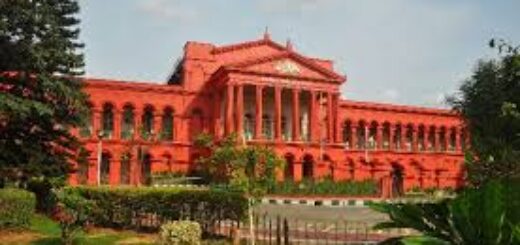Every arrest and detention is not considered custodial torture, according to the Allahabad High Court, which dismissed a claim of custodial torture.

The Allahabad High Court has recently turned down a petition that claimed custodial torture. The court stated that allegations of police violence need strong evidence, like a medical report, for any action to be taken. Shah Faisal filed a writ petition asking for compensation and action against two police officers, claiming they wrongfully detained and assaulted him while trying to extort a bribe. The Division Bench, led by Justice Mahesh Chandra Tripathi and Justice Prashant Kumar, dismissed the case, pointing out that the petitioner did not provide any supporting medical or documentary proof for his claims. The Bench remarked that while the Court aims to protect the fundamental rights of those who face torture in custody, it must also guard against false and ungrounded claims to allow the police to perform their duties effectively and without fear. Not every arrest or detention is considered custodial torture.
Adeel Ahmad Khan represented Faisal, while Ram Bahadur Singh represented the State. Faisal alleged that he was unlawfully detained on February 14, 2021, by officers who demanded Rs. 50,000 and physically assaulted him when he refused. He also stated that despite making several complaints, no FIR was filed. The Court emphasized that false claims of custodial torture can harm the judicial system and hinder police work. It warned that without strong evidence, like a medical report showing injuries from custody, petitions under Articles 32 or 226 are not suitable. The Court pointed out three key criteria for these cases: clear violation of human rights under Article 21, the seriousness of the violation that shocks the judicial conscience, and solid proof of custodial torture. The Bench stated, “Before considering such petitions for compensation or action against police officials for judicial torture, the Court must ask itself: (a) is there a clear violation of human rights or Article 21? (b) is the violation severe enough to shock the court’s conscience? and (c) is there enough evidence to prove custodial torture? If these allegations lack medical reports or other supporting evidence, the Court should not proceed with such cases.”
The scope of human rights is growing, but the crime rate is also rising. The Court has been getting complaints about human rights violations. It is important to balance these violations with the enforcement of the law. There needs to be a practical balance between individual rights and responsibilities, the Court stated. After reviewing the details, the Court noted that the petitioner’s claims seemed overstated, particularly since there was a police report against him for allegedly attacking someone else. An investigation into the claims showed that the police officers did nothing wrong, resulting in their release.The court stated that it cannot be assumed the petitioner is innocent. There is a First Information Report (FIR) against him for allegedly hitting Rishikesh Bharti with a rod. The petitioner filed a complaint on the IGRS portal, leading the Senior Superintendent of Police (SSP) to start an inquiry. After the inquiry, no evidence was found against respondents 4 and 5, and they were released, a decision the petitioner did not challenge. This inquiry process is now final. Additionally, there is no clear violation of the petitioner’s human rights, nor can it be considered a serious violation. Thus, it cannot be claimed that law enforcement acted excessively in addressing crime in society.
The Court rejected the petition, explaining that mere allegations without proof do not justify compensation or relief. “In this case, there is no solid evidence of custodial torture against the petitioner. Without such evidence, we do not believe this situation qualifies for compensation or any other relief, as seen in the cases of Shiv Kumar Verma and Ramesh Chand Gupta. Thus, we are not willing to grant any compensation or relief based on the Supurdginama prepared on 16.02.2021, which the petitioner himself signed, confirming that he and his father were called for an inquiry on that date and left together afterward,” the Court stated.
Cause Title: Shah Faisal v. State Of U.P. And 4 Others [Neutral Citation No. 2024:AHC:164048-DB]
Appearance:
Petitioner: Advocates Adeel Ahmad Khan, Mohd. Samiuzzaman Khan, Saddam Husain
Respondent: Government Advocate Ram Bahadur Singh









